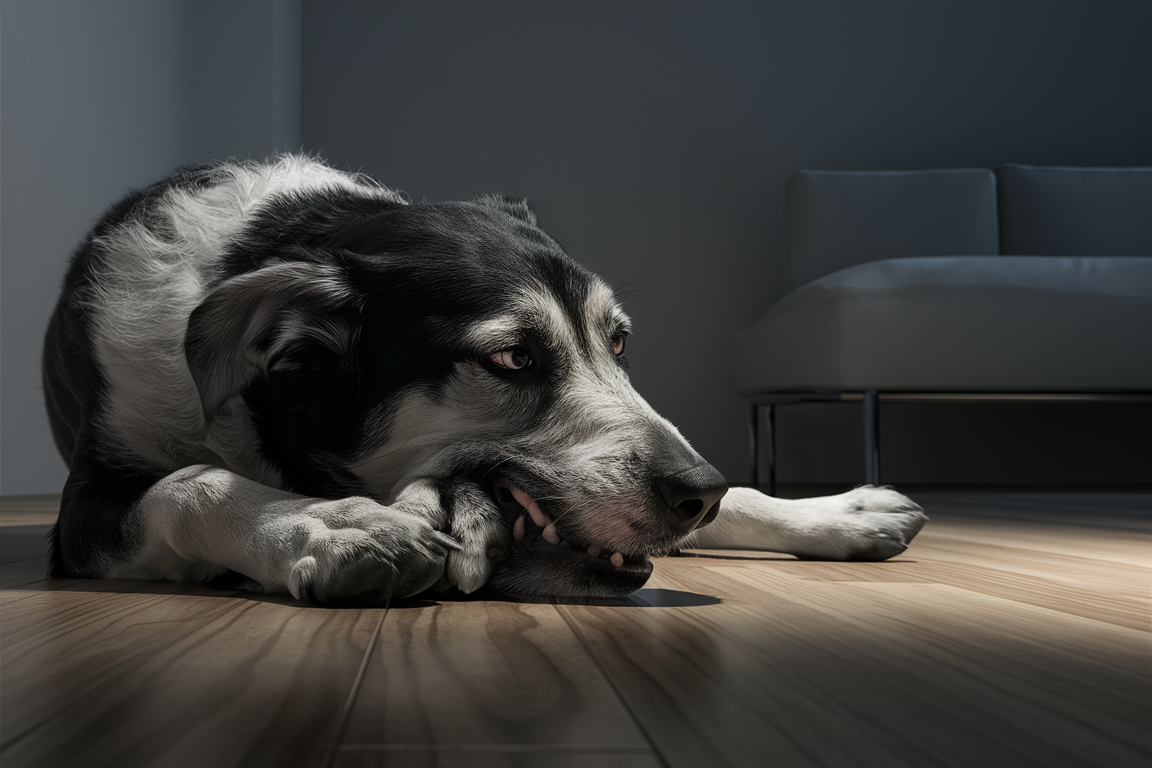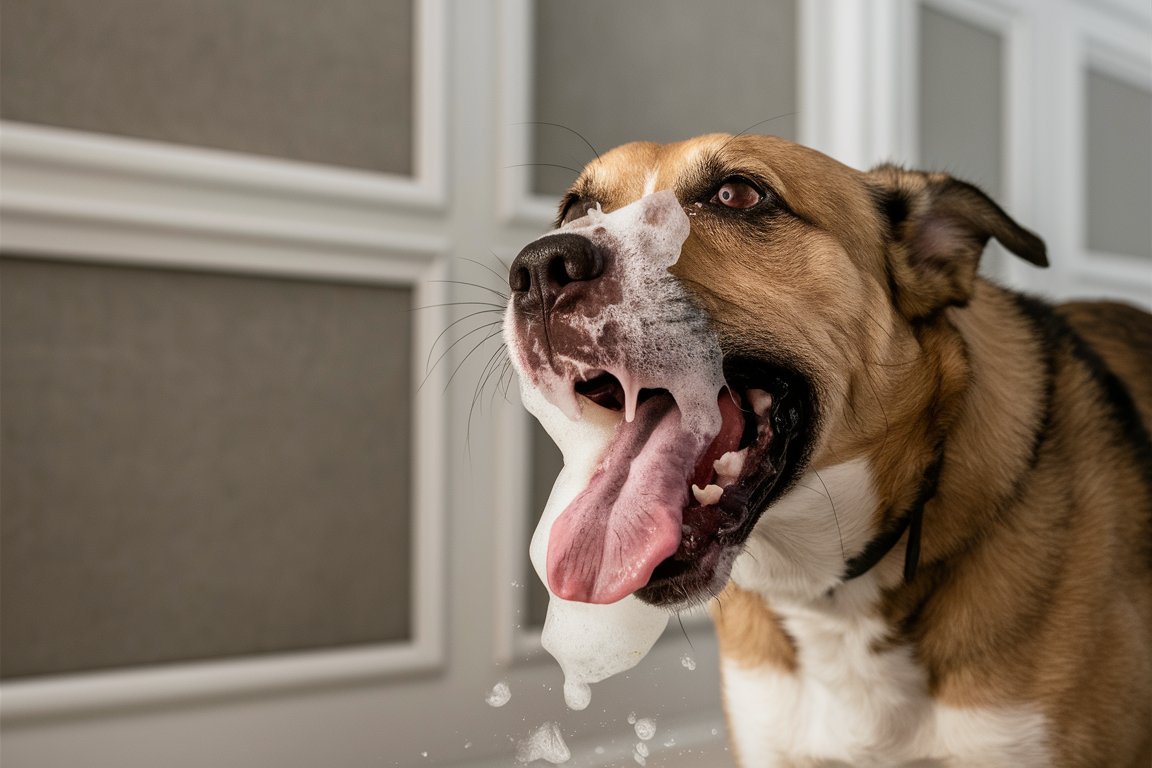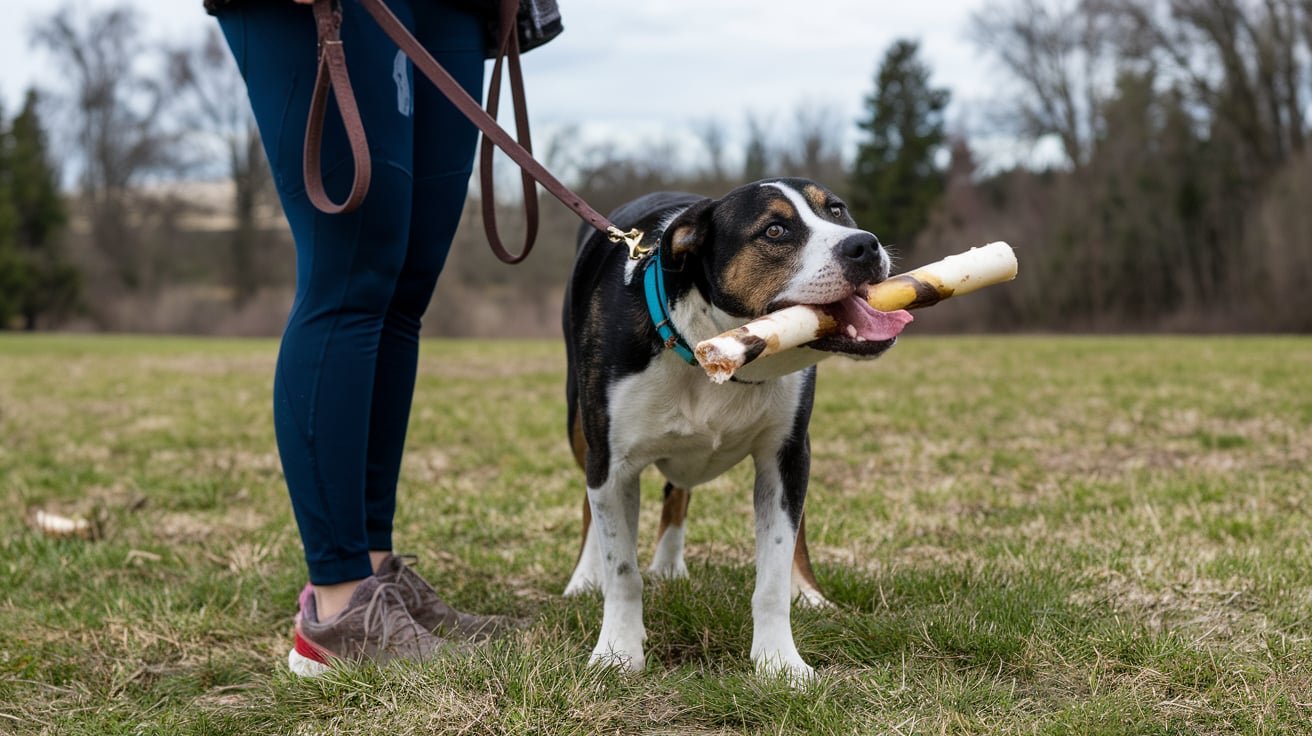Why Is My Dog Biting Their Paws?
Have you ever caught your dog intensely biting their paws and wondered, “What could be causing this?” This behavior can be concerning for any pet owner. Not only does it seem uncomfortable for your furry friend, but it can also be a sign of an underlying issue that needs attention. Let’s dive into why dogs bite their paws, how to identify the cause, and what you can do to help them stop.
Common Reasons Dogs Bite Their Paws
There are several reasons why your dog might be biting their paws. Some of the most common causes include:
1. Allergies
Just like humans, dogs can suffer from allergies. These can be caused by various things, such as food, environmental factors, or even certain cleaning products. When a dog has an allergic reaction, their skin can become itchy and irritated, leading them to bite their paws to try and relieve the discomfort.
Example: I remember a time when my dog, Max, kept biting his paws after every walk. It turned out that he was allergic to the pollen from certain plants in our neighborhood. Once we identified the allergen, we made some changes to our walking route, and the paw biting decreased significantly.
Step-by-step guide to addressing allergies:
- Observe the timing and frequency of the paw biting. Is it happening after meals, walks, or exposure to certain areas?
- Consult with your vet to determine if an allergy test is necessary.
- If allergies are confirmed, adjust your dog’s diet or environment accordingly. Your vet might recommend hypoallergenic dog food or specific cleaning products.
- Consider using a soothing paw balm that is safe for dogs. This can help ease the irritation and prevent further biting.
2. Boredom or Anxiety
Dogs, especially those left alone for long periods, can develop behaviors like paw biting due to boredom or anxiety. This is often a way for them to cope with stress or to occupy their time.
: A friend of mine had a dog who was alone during work hours. Over time, the dog began biting his paws excessively. After trying various solutions, they found that providing more interactive toys and scheduling regular play sessions with a dog walker made a huge difference.
Step-by-step guide to managing boredom or anxiety:
- Ensure your dog gets enough exercise. Regular walks and playtime can help burn off excess energy.
- Provide mental stimulation through puzzle toys or treat-dispensing toys. This keeps your dog engaged and less likely to develop destructive behaviors.
- If your dog suffers from separation anxiety, consider a professional dog trainer or behaviorist who can help address the root cause.
3. Parasites
Fleas, ticks, and mites can cause intense itching, leading to paw biting. These tiny pests can make your dog extremely uncomfortable, and biting their paws might be their way of trying to get rid of the irritation.
Step-by-step guide to dealing with parasites:
- Regularly check your dog’s fur and paws for signs of fleas, ticks, or mites.
- Use vet-approved flea and tick preventatives. There are various options available, such as topical treatments, oral medications, and collars.
- If you suspect a mite infestation, visit your vet immediately for a proper diagnosis and treatment plan.
4. Injuries or Foreign Objects
Sometimes, dogs bite their paws because of an injury or a foreign object, like a thorn or splinter, stuck in their paw pads. This can be painful, and biting is their way of trying to remove the object or soothe the pain.
Step-by-step guide to checking for injuries:
- Inspect your dog’s paws regularly. Look for cuts, swelling, or anything unusual.
- If you notice something stuck in your dog’s paw, gently remove it with tweezers. If it’s deep or causing bleeding, visit your vet.
- Keep your dog’s paws clean. After walks, especially in areas with rough terrain, give their paws a quick wipe down to remove any debris.
When to See a Vet
While some paw biting can be managed at home, there are times when it’s essential to consult your vet. If your dog is persistently biting their paws to the point of causing bleeding, hair loss, or visible discomfort, it’s time to get professional help.
Your vet may perform tests to determine if the paw biting is due to a medical condition like dermatitis, fungal infections, or a more severe allergy. Treatment might involve medications, changes in diet, or even a prescription shampoo to soothe irritated skin.
How to Prevent Paw Biting in the Future
Preventing paw biting can often be achieved by maintaining a routine that keeps your dog happy, healthy, and comfortable.
- Regular Grooming: Keep your dog’s nails trimmed and their fur clean. This reduces the chances of irritation or injuries.
- Healthy Diet: Ensure your dog’s diet is balanced and free from potential allergens.
- Flea and Tick Prevention: Stick to a regular schedule for flea and tick treatments.
- Mental and Physical Stimulation: Provide plenty of exercise and mental challenges to prevent boredom.
- Regular Vet Visits: Routine check-ups can help catch any potential issues before they become severe.
Final Thoughts
Understanding why your dog is biting their paws is the first step toward helping them feel better. Whether it’s due to allergies, boredom, parasites, or something else, there are steps you can take to address the issue and provide relief.
Remember, while it might be tempting to buy over-the-counter products to treat paw biting, it’s always best to consult your vet first. They can guide you toward the most effective and safe solutions for your dog.
By taking proactive steps, you can ensure your dog stays happy, healthy, and free from the discomfort that leads to paw biting. After all, a happy dog means a happy pet owner!
Ready to Help Your Dog Stop Biting Their Paws?
If you’re ready to take action, consider investing in some high-quality products recommended by veterinarians. Whether it’s a soothing paw balm, a flea treatment, or a new interactive toy, these tools can make a significant difference. This article should give you a solid foundation to understand why your dog might be biting their paws and how to address it.



